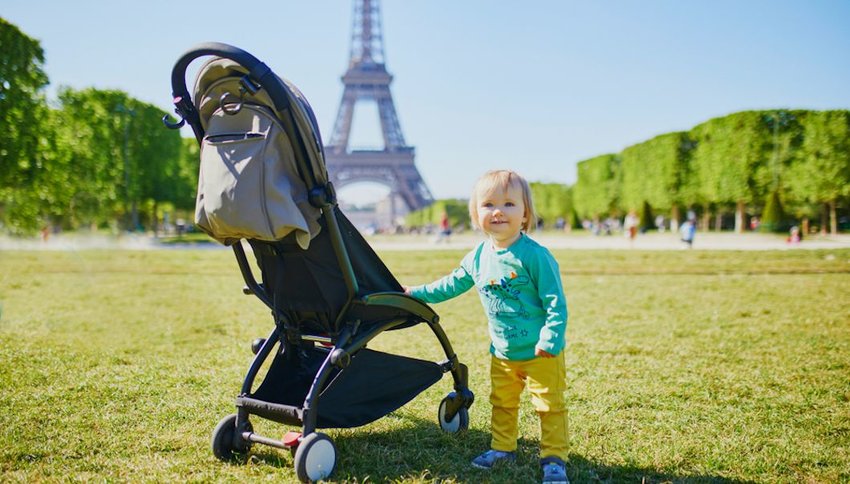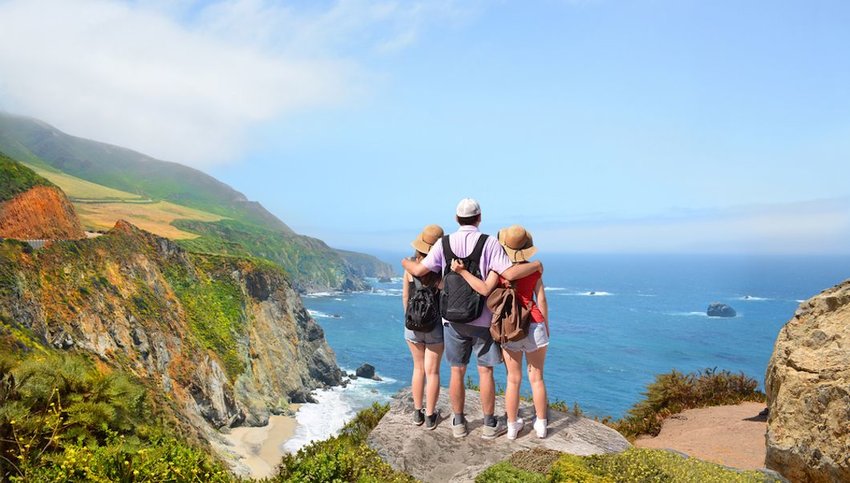Many would question the idea of traveling with children but, for those accustomed to life on the road, travel is much more just than an annual week at the beach. It’s an educational tool that teaches about everything from worldwide cultures to history, food and geography. It’s an introduction to global diversity and the concept of similarities rather than differences. It teaches responsibility, improves self confidence, promotes hands-on learning, and fosters adventurousness.
While traveling with your children requires patience, will create new challenges, and produce unexpected events, the benefits are far greater than the drawbacks. After all, for stimulating curious minds and filling them with lifetime memories, there’s no better classroom than the world itself.
Traveling with Babies and Toddlers

There’s an old adage that you should get all of your traveling done before you have kids. But there’s also no reason why becoming a parent should stop you from what you love the most. Travel is like many things in life: the earlier you start the better. The more you travel with your baby, the more confident and comfortable they will become. And if you can turn it into a habit then long-distance travel will become second nature to them. Babies thrive on originality, therefore every new sight, sound and smell they encounter will trigger and stimulate their developing senses.
Traveling with toddlers is also extremely beneficial to the parent. As they still sleep a lot, walk for only short distances at a time and generally don’t answer back, you’ll have the freedom to plan vacations around what you want to do. Although you’ll want to expose them to as much as possible, you can use nap times for activities such as laidback lunches, gallery and museum visits and shopping excursions. This lets you maintain and rekindle your own personal desire to discover more outside of your day-to-day lifestyle.
Traveling with Preschoolers

At preschool age, you still have the opportunity to book a ticket and go without being confined to academic terms. So don’t think twice when contemplating a trip with your little one. Preschoolers are wide-eyed and incredibly curious, therefore travel is a golden opportunity to fuel their thirst for knowledge. It’s also a great way to bring to reality the things they’ll have seen in books and on television.
This is the age when you can start to involve your children with activity planning. They’ll become more flexible when understanding that it’s not possible to do everything. You can teach them the value of responsibility and independence by letting them pack their own day bag and hand over transport tickets. Kids rarely have trouble making friends and their self confidence will grow when interacting with people of different nationalities. As a parent you’ll notice an improvement in your own patience levels when your child’s request for five more minutes at the playground disrupts your schedule.
Traveling with Grade Schoolers

Once your children are of school age they should be confident when facing new challenges and dealing with unexpected situations. Through travel they can use these skills to see opportunities instead of stumbling blocks when delays occur or bad weather forces a change to plans. Their desire to learn about the many countries, cultures, animals species and ecosystems in the world will increase substantially. Their flourishing minds will also become adept at naming global capitals and pinpointing countries on a map.
By this time your children will be old enough and big enough for you not to worry about age and height restrictions at amusement parks, outdoor adventure centers and wildlife encounters. You can use this to your advantage by having license to release your inner child. All the things you enjoyed as a child can now be enjoyed again and thorough the captivated eyes of your kids.
Traveling with Teens

In a world dominated by technology, it’s easy for teenagers to lose sight of what is going on around them. But getting them out of their comfort zone can prove to be both empowering and humbling. Witnessing foreign lifestyles will make them appreciate that not everything is about them. It teaches them perspective and fosters a respect for what they have at home. They’ll mature and gain confidence if given opportunities to explore parent-free and successfully navigate the unknown. A parents reward will be the teen’s desire to share their stories.
Regardless of your children’s age, traveling is arguably the best way to break from the daily grind. By spending more time together you’ll forge closer bonds and learn more about one another. As parents you can focus all of your attention on your children, who will benefit from as much attention as they crave. Ultimately, you’ll be doing your part to inspire the next generation of travelers.
